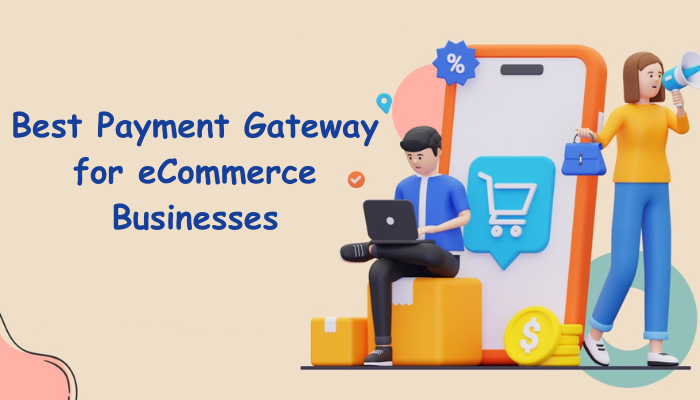Hey there, fellow online entrepreneur! So, you’re on the hunt for the ideal payment gateway to power your e-commerce empire, huh? Well, buckle up because you’re in for a ride! In this blog post, we’re diving deep into the world of payment gateways. We’ll explore why choosing the right one is crucial, what factors you should consider, and even dish out ten top contenders with their pros and cons. So, grab your favorite beverage, kick back, and let’s unravel the mystery of payment gateways together!
Why Choosing the Right Payment Gateway Matters

Alright, let’s get real for a moment. Your choice of payment gateway can make or break your online business. Picture this: you’ve spent countless hours building your dream website, stocking up on top-notch products, and perfecting your marketing strategy. But then, when it comes time for your customers to make a purchase, they’re greeted with a clunky, unreliable payment process. Cue the horror music! That’s why selecting the perfect payment gateway is crucial. It ensures smooth sailing for both you and your customers, boosting trust, and ultimately, sales.
Factors to Consider When Choosing a Payment Gateway

Now that we’ve established the importance, let’s talk shop. Here are some key factors to keep in mind when scouting for your ideal payment gateway:
- Transaction Fees: Nobody likes surprise fees, am I right? Make sure you’re crystal clear on the transaction fees associated with each provider.
- Security Features: Locking down your customers’ sensitive data should be a top priority. Look for robust security features like encryption and fraud detection.
- Supported Payment Methods: Variety is the spice of life, and that applies to payment methods too! Ensure your chosen gateway supports a range of options to cater to diverse customer preferences.
5 Payment Gateway Providers: Pros and Cons
1).PayPal:

Pros:
Global Acceptance: PayPal is widely recognized and accepted globally, making it convenient for businesses with international customers.
Easy Setup: Setting up a PayPal account is relatively quick and straightforward, especially for small businesses or individuals.
Buyer Protection: PayPal offers strong buyer protection policies, which can increase customer trust and reduce disputes.
Developer-Friendly: PayPal provides comprehensive APIs and developer tools, making it easy to integrate with various platforms and customize payment flows.
Cons:
High Fees: PayPal’s transaction fees can be relatively high, especially for international transactions or certain types of payments.
Limited Customization: While PayPal offers some customization options for checkout pages, they may not be as extensive as some other providers.
Funds Holding: PayPal sometimes holds funds for new accounts or suspicious transactions, which can be inconvenient for businesses needing immediate access to funds.
2).Stripe:

Pros:
Developer-Friendly: Stripe is well-known for its developer-friendly APIs and documentation, making it easy for businesses to integrate and customize payment processes.
Customizable Checkout: Businesses have extensive control over the checkout experience, allowing for seamless integration with existing branding and user experience.
Transparent Pricing: Stripe offers transparent pricing with no setup fees or monthly charges, which can be advantageous for businesses with fluctuating transaction volumes.
Cons:
Complex Documentation: Some users find Stripe’s documentation challenging to navigate, especially for those without a strong technical background.
Geographical Limitations: Stripe may not be available in all countries, limiting its suitability for businesses operating in certain regions.
Account Freezes: Stripe has been known to freeze or suspend accounts for suspicious activities, which can disrupt business operations.
3).Square:

Pros:
All-in-One Solution: Square offers an all-in-one solution for businesses, including hardware for in-person payments, which can be convenient for small businesses or those just starting.
Simple Setup: Square’s setup process is straightforward, making it accessible to businesses without extensive technical knowledge.
Transparent Pricing: Square’s pricing is transparent, with flat-rate transaction fees, making it easy for businesses to understand their costs.
Cons:
Limited International Support: Square’s services are primarily focused on the US and a few other countries, limiting its suitability for businesses with global operations.
Higher Fees for Manual Entry: Square charges higher fees for manually entered transactions, which can be costly for businesses that frequently key in card details.
Funds Holding: Square may hold funds for certain types of transactions or new accounts, which can be problematic for businesses needing immediate access to funds.
4).Authorize.Net:

Pros:
Established and Reliable: Authorize.Net is a well-established and reliable payment gateway provider, trusted by many businesses for secure online transactions.
Supports Various Payment Methods: Authorize.Net supports various payment methods, including credit cards, digital wallets, and e-checks, providing flexibility for businesses and customers.
Robust Security Features: Authorize.Net prioritizes security, offering advanced fraud detection and prevention features to protect businesses and customers.
Cons:
Merchant Account Requirement: Using Authorize.Net requires a separate merchant account, which can add complexity and additional fees for businesses.
Complex Setup: Setting up Authorize.Net can be more complex compared to some other payment gateway providers, requiring technical expertise or assistance from developers.
Additional Fees: Authorize.Net may charge additional fees for certain features or services, which can increase costs for businesses, especially smaller ones.
5).Braintree:

Pros:
Developer-Friendly: Braintree provides modern APIs and SDKs, making it easy for developers to integrate and customize payment processes.
Supports Multiple Payment Methods: Braintree supports various payment methods, including credit cards, PayPal, and digital wallets like Apple Pay and Google Pay, offering flexibility for businesses and customers.
Transparent Pricing: Braintree offers transparent pricing with no setup fees and competitive transaction rates, which can be attractive to businesses with high transaction volumes.
Cons:
Limited International Support: While Braintree supports transactions in multiple currencies, its availability may be limited in certain countries or regions, potentially restricting its use for global businesses.
Minimum Monthly Fees: Braintree imposes minimum monthly fees for certain businesses, which can be a drawback for very small businesses or those with inconsistent transaction volumes.
Funds Settlement: Some users report delays in funds settlement or disbursement, which can impact cash flow for businesses requiring quick access to funds.
Conclusion
And there you have it, folks! Choosing the perfect payment gateway is no easy feat, but armed with the right knowledge, you’re well on your way to e-commerce greatness. Remember to weigh the pros and cons, consider your specific business needs, and don’t be afraid to shop around. With the right payment gateway by your side, you’ll be raking in the sales and delighting customers left and right. Happy selling!













































